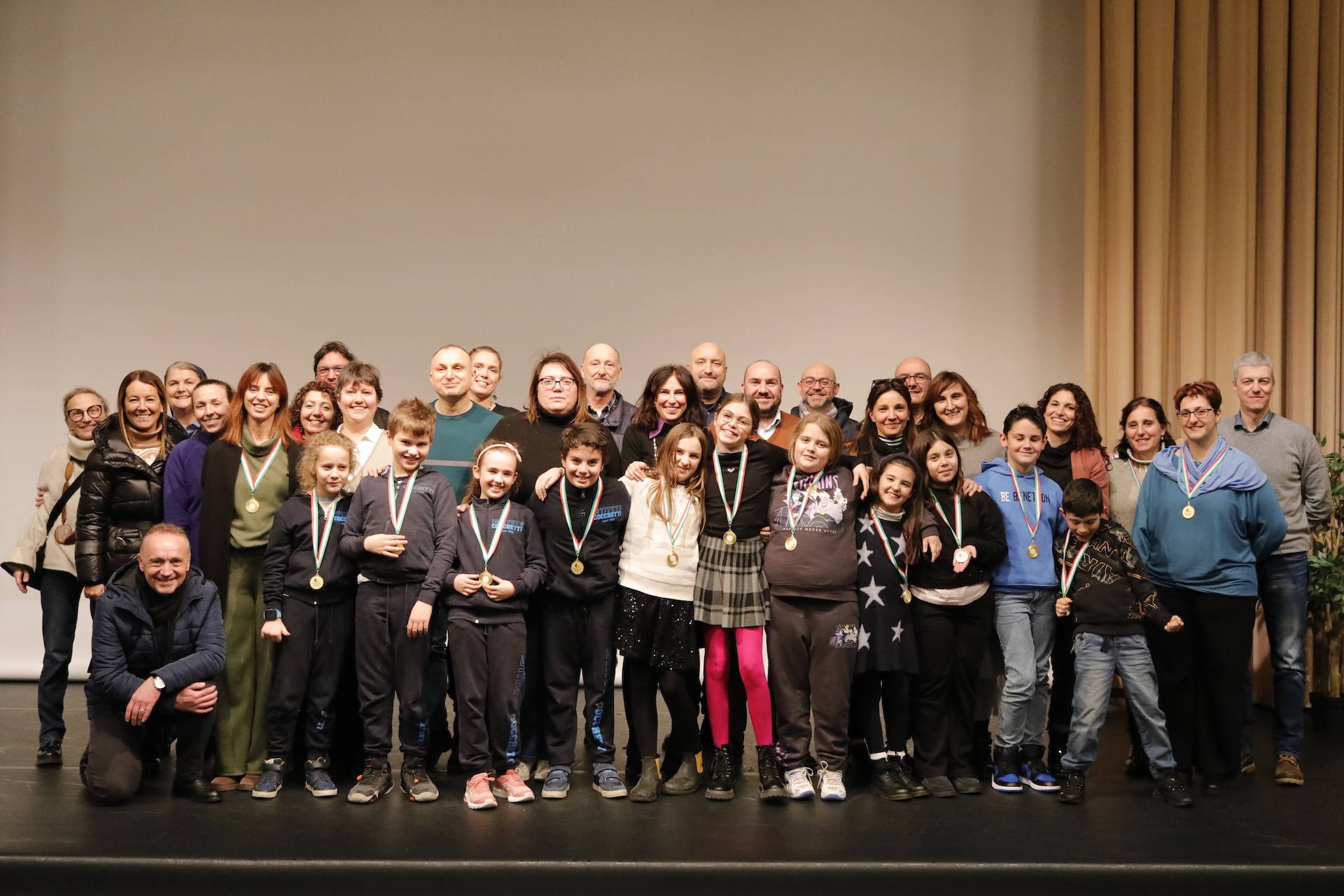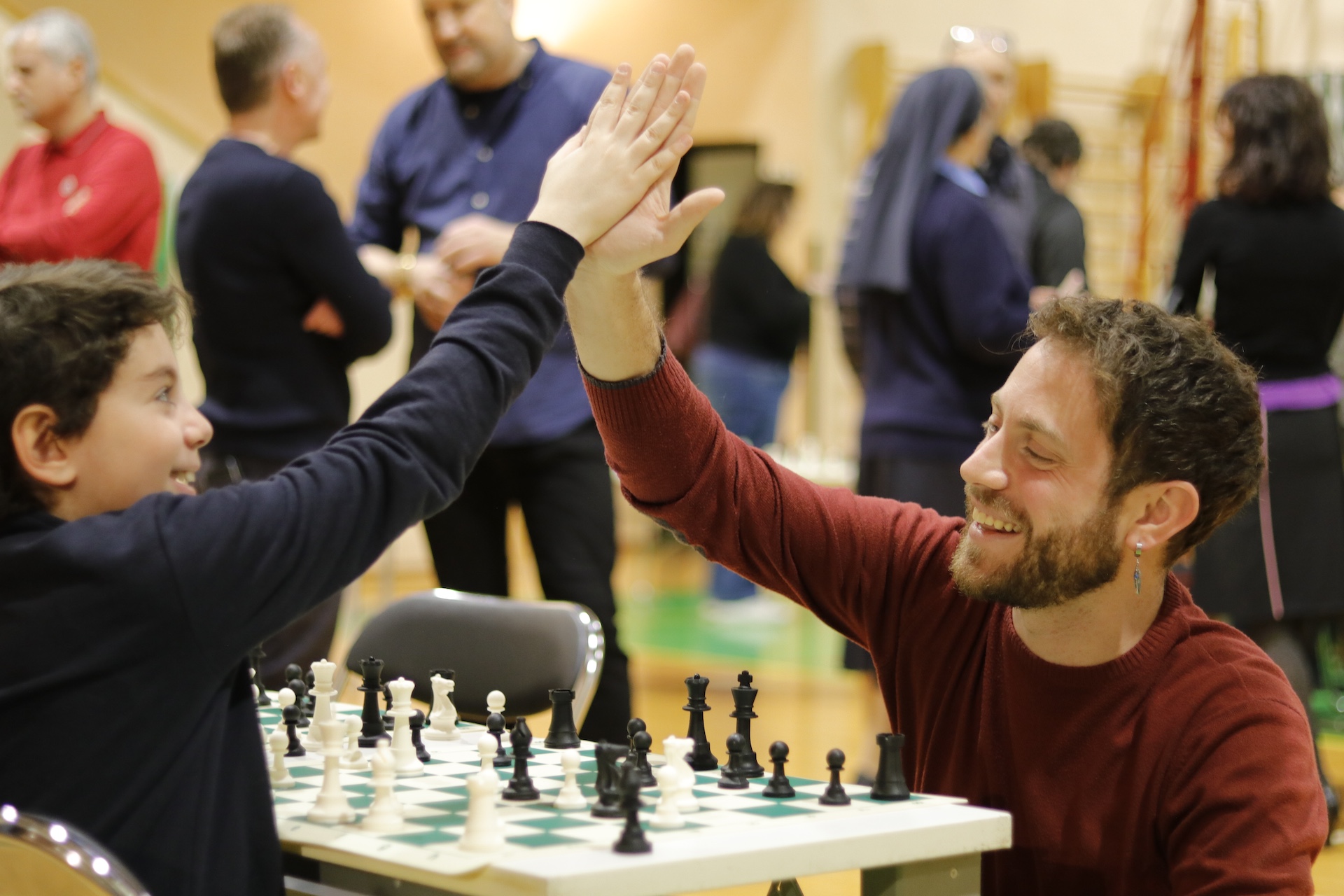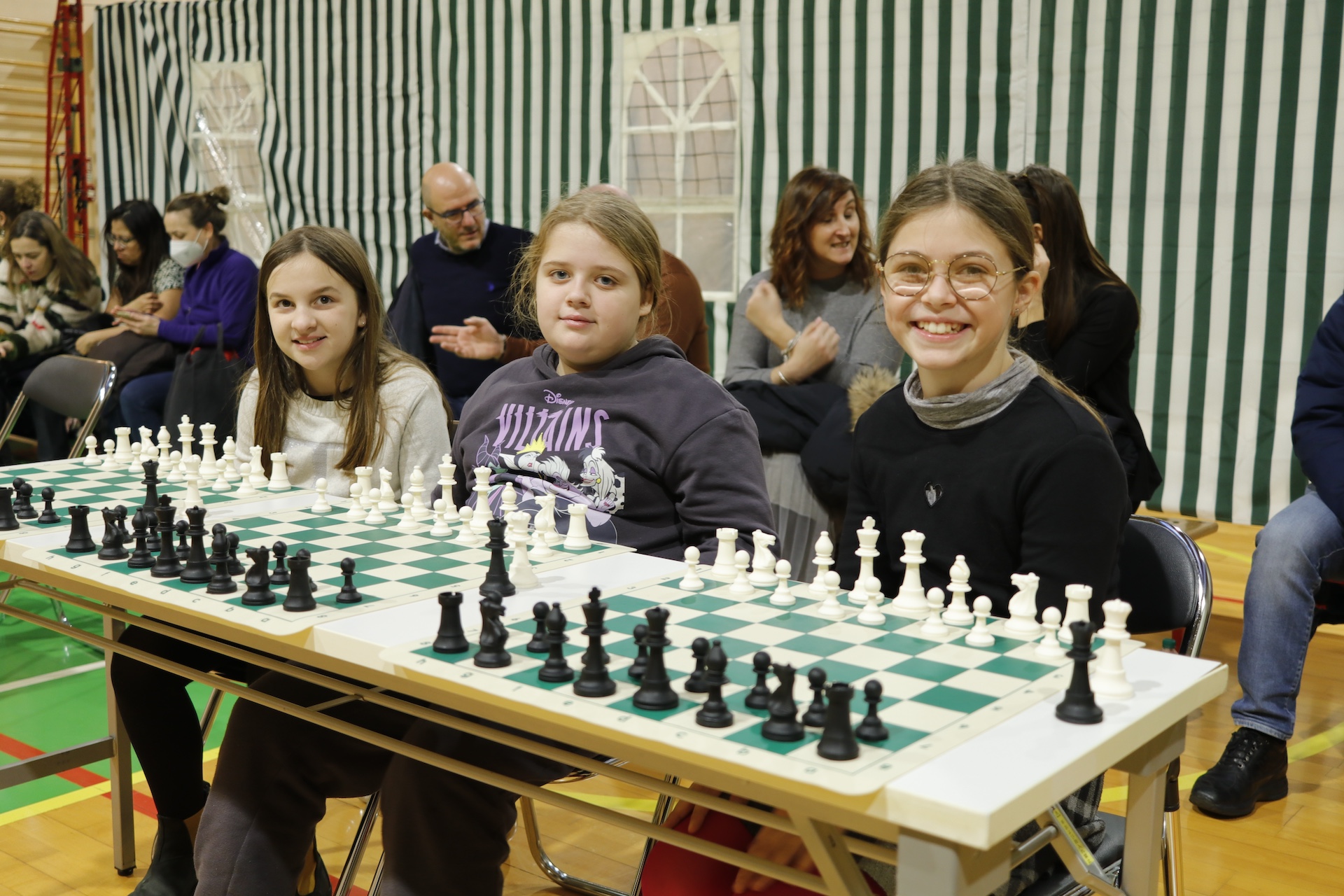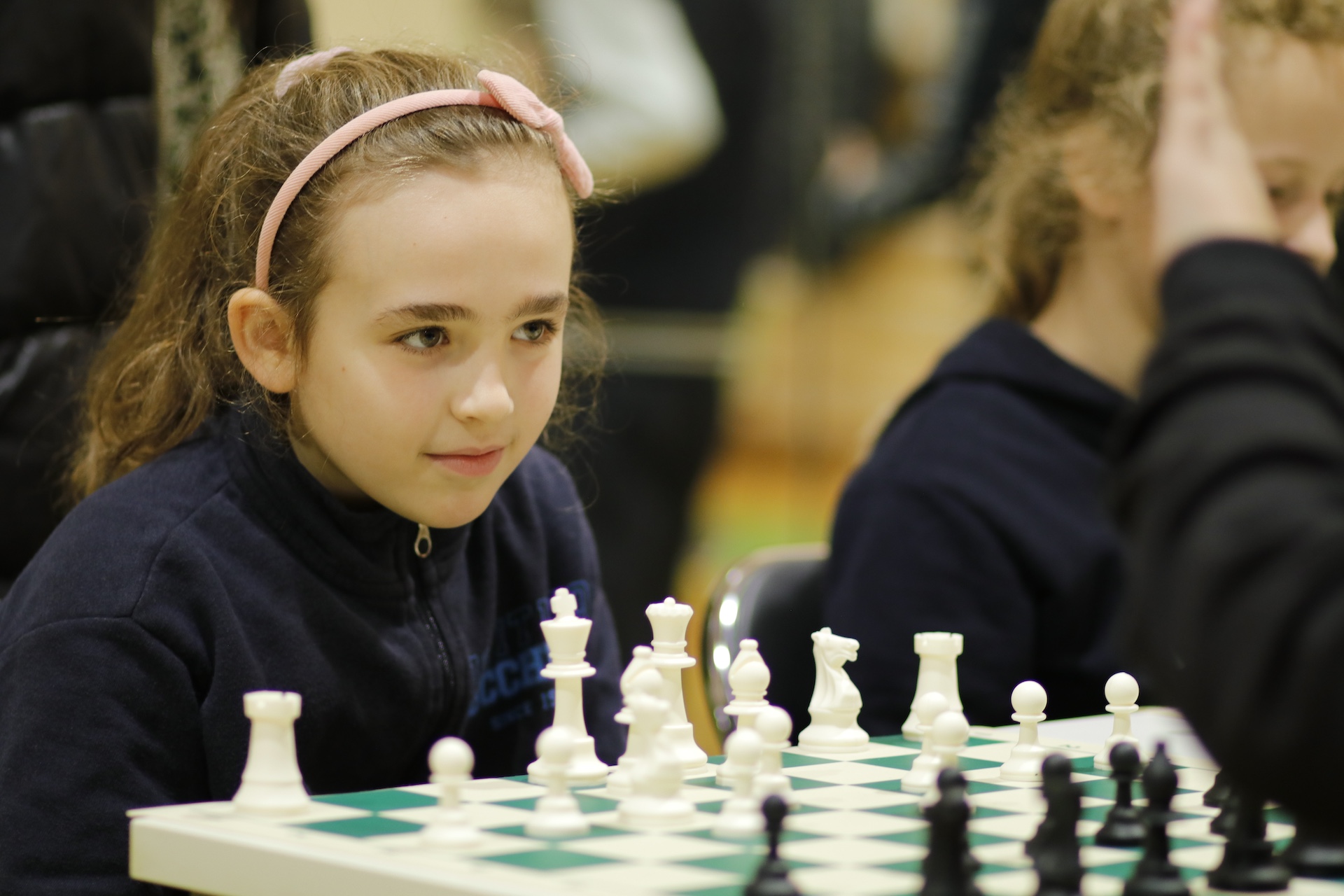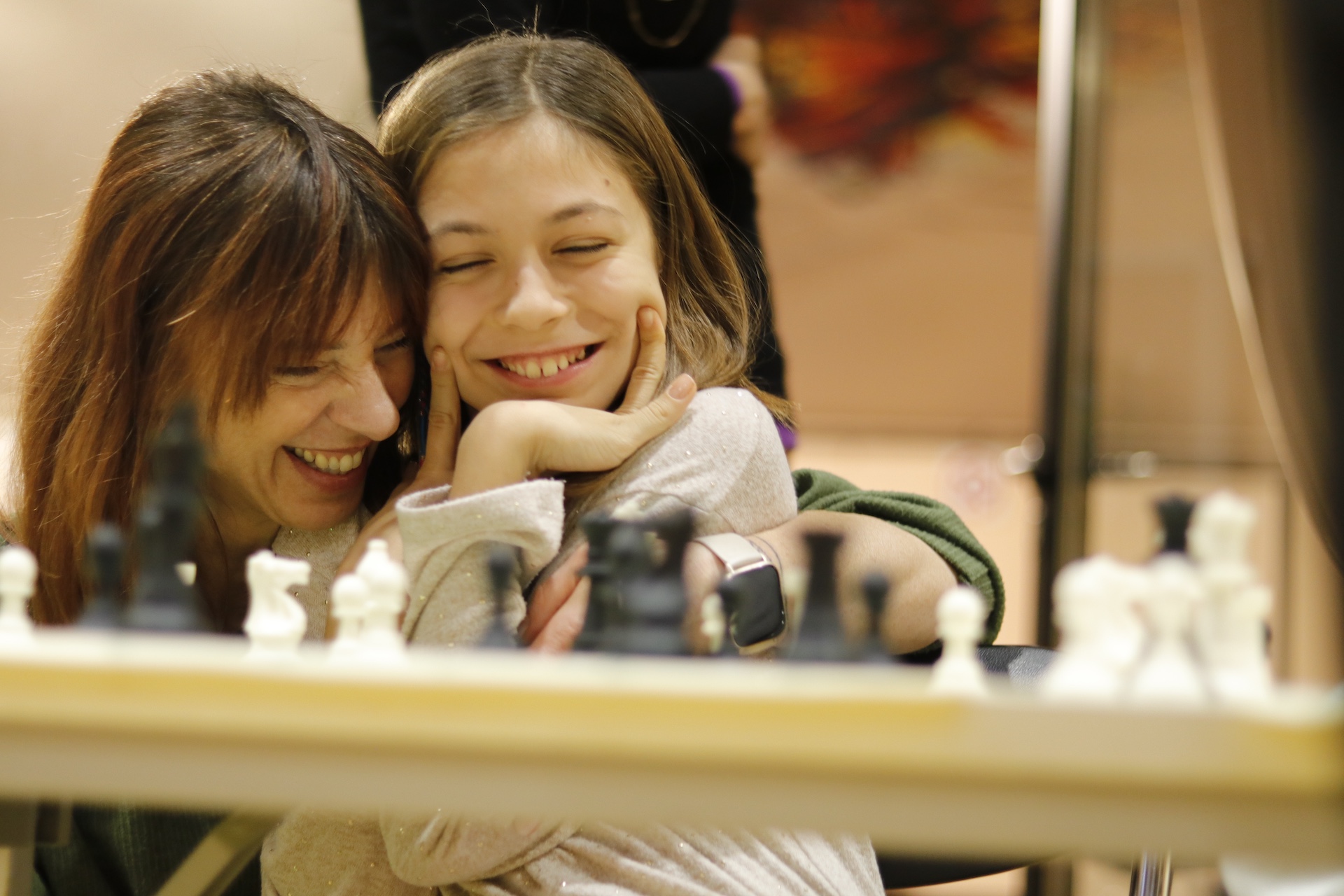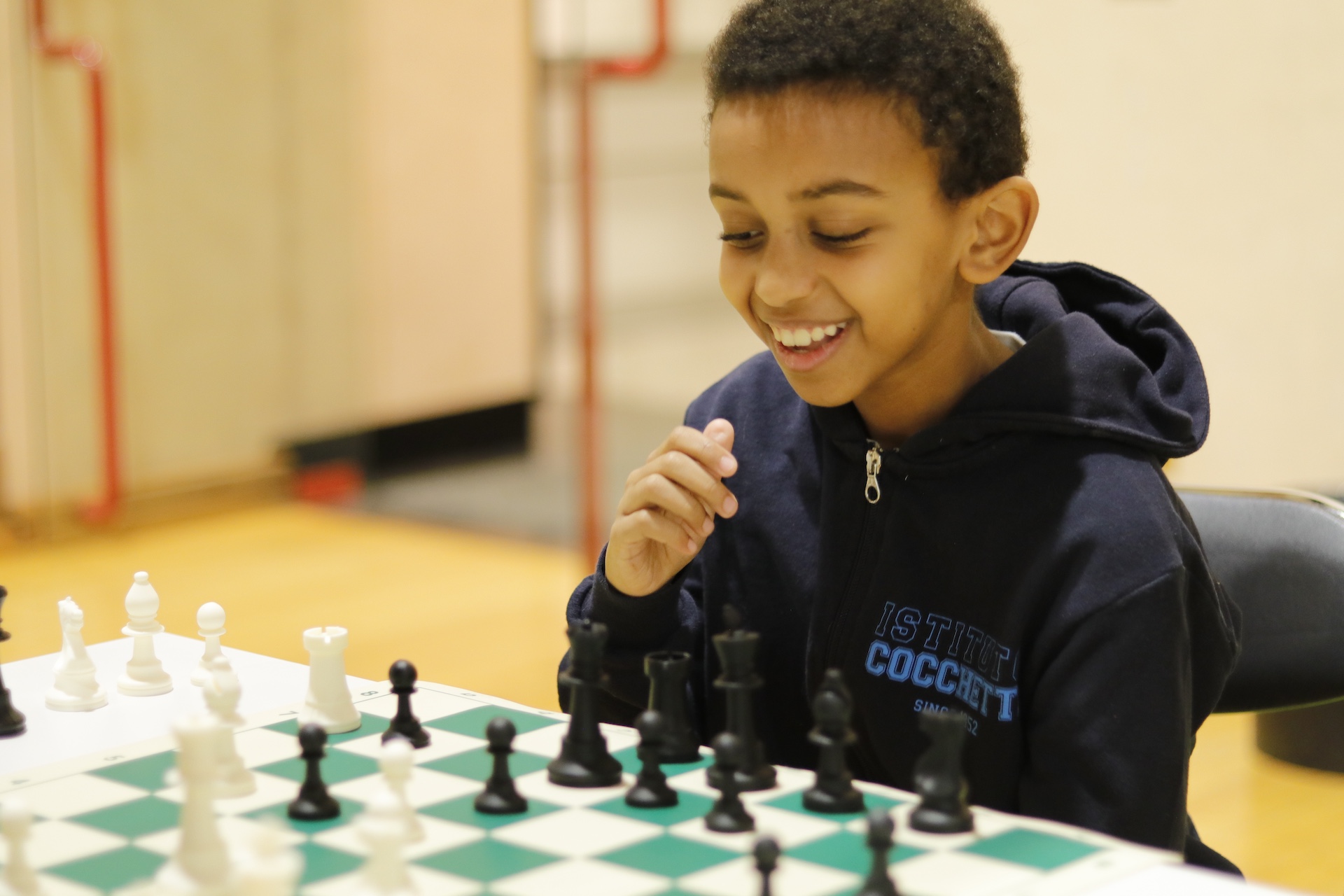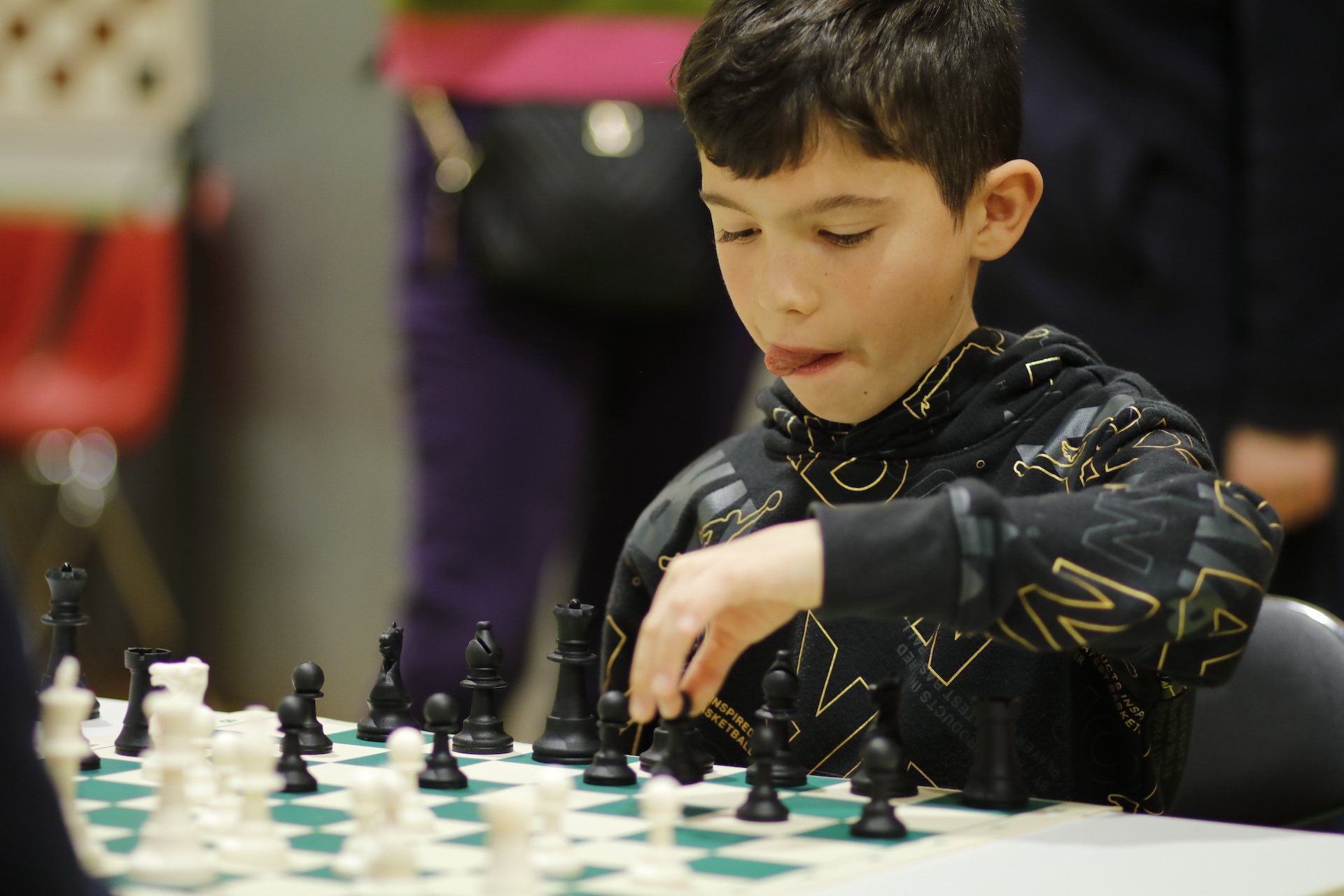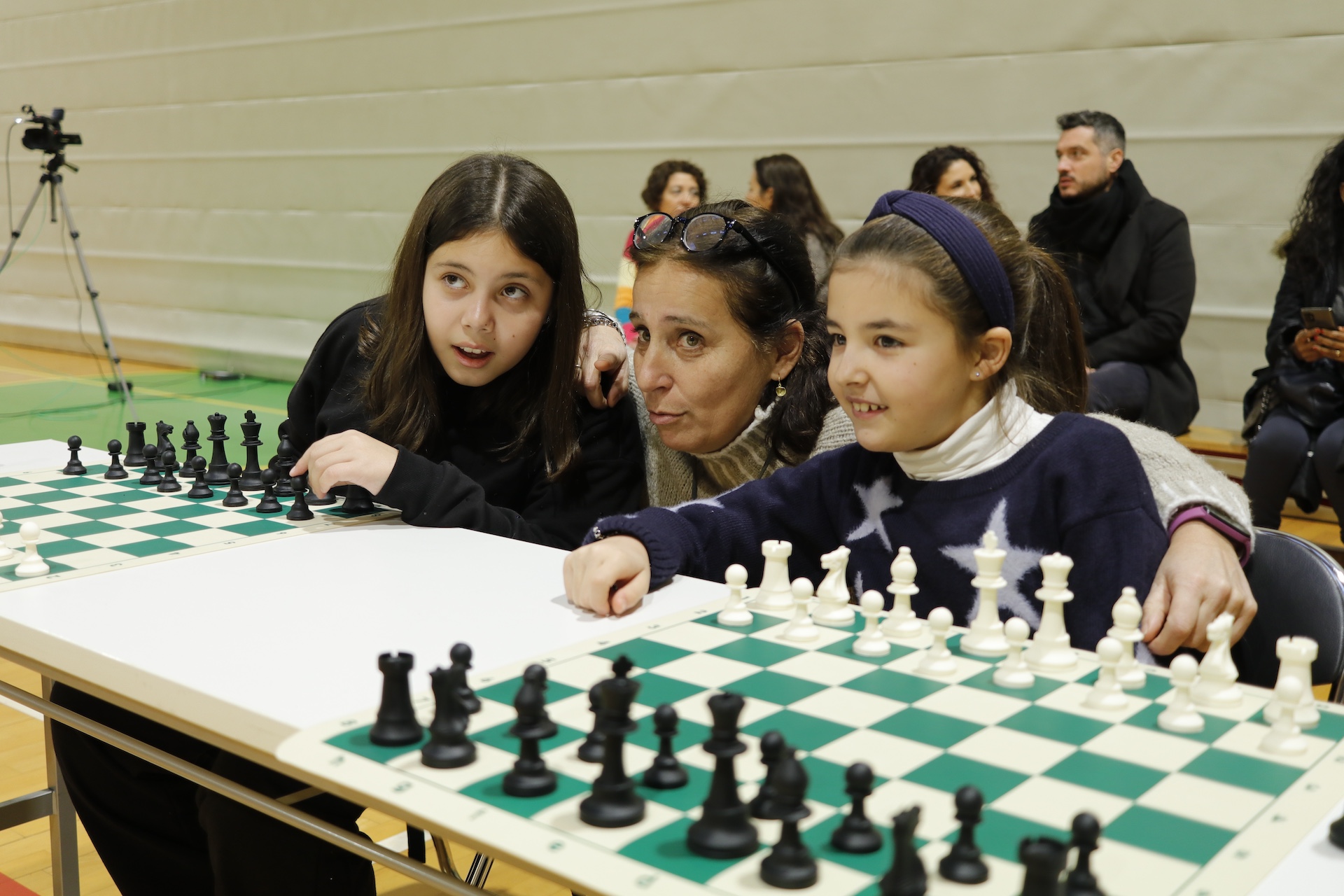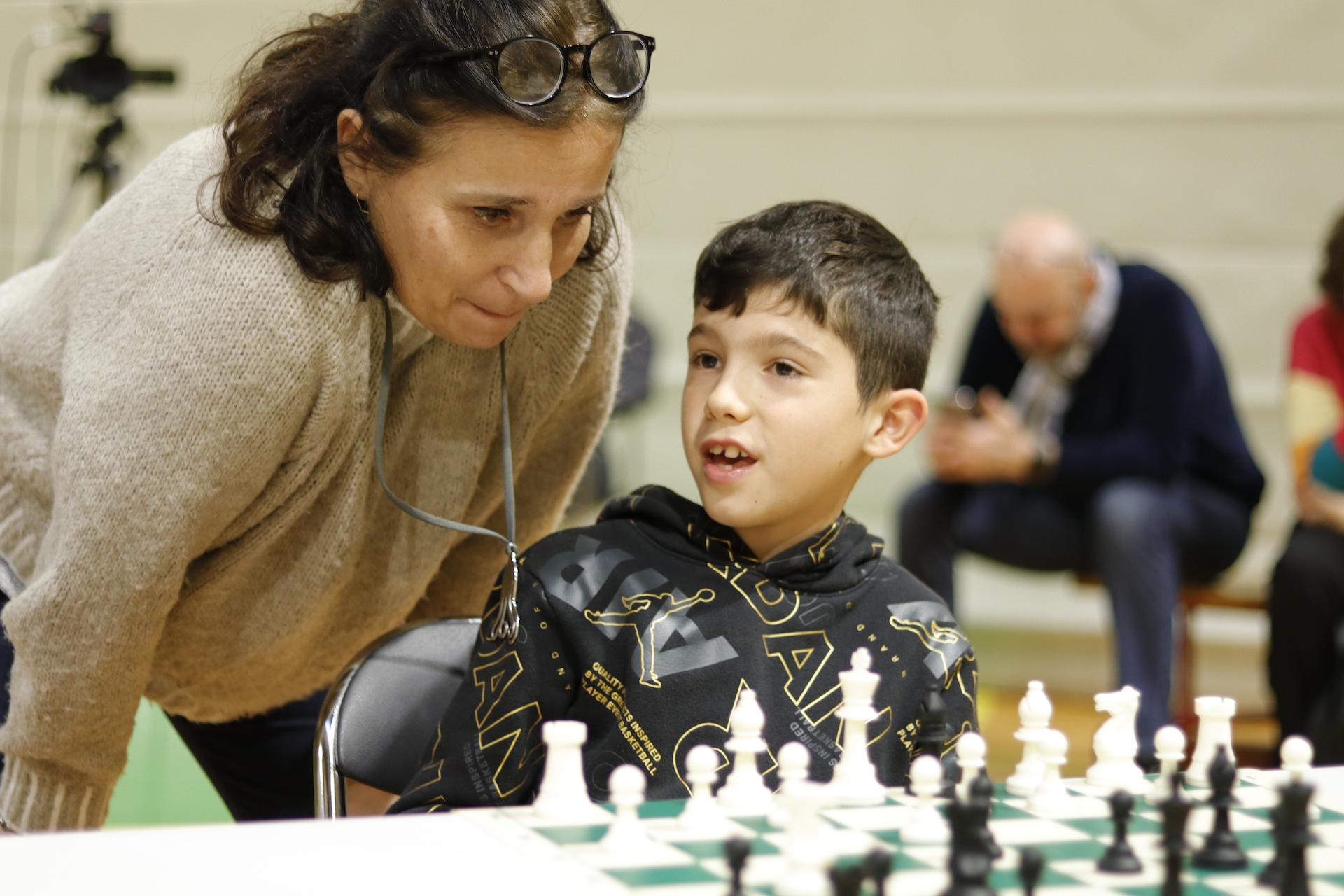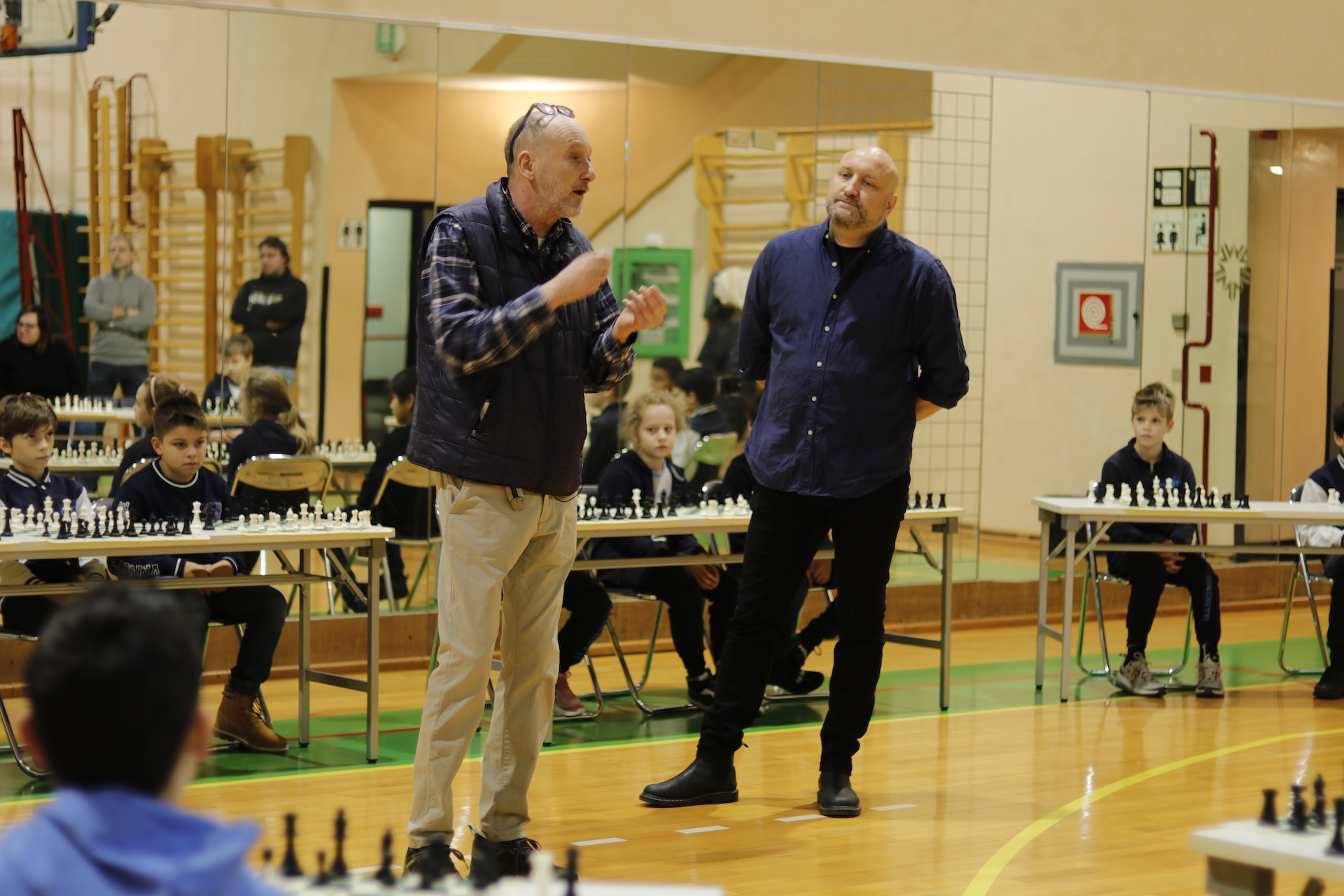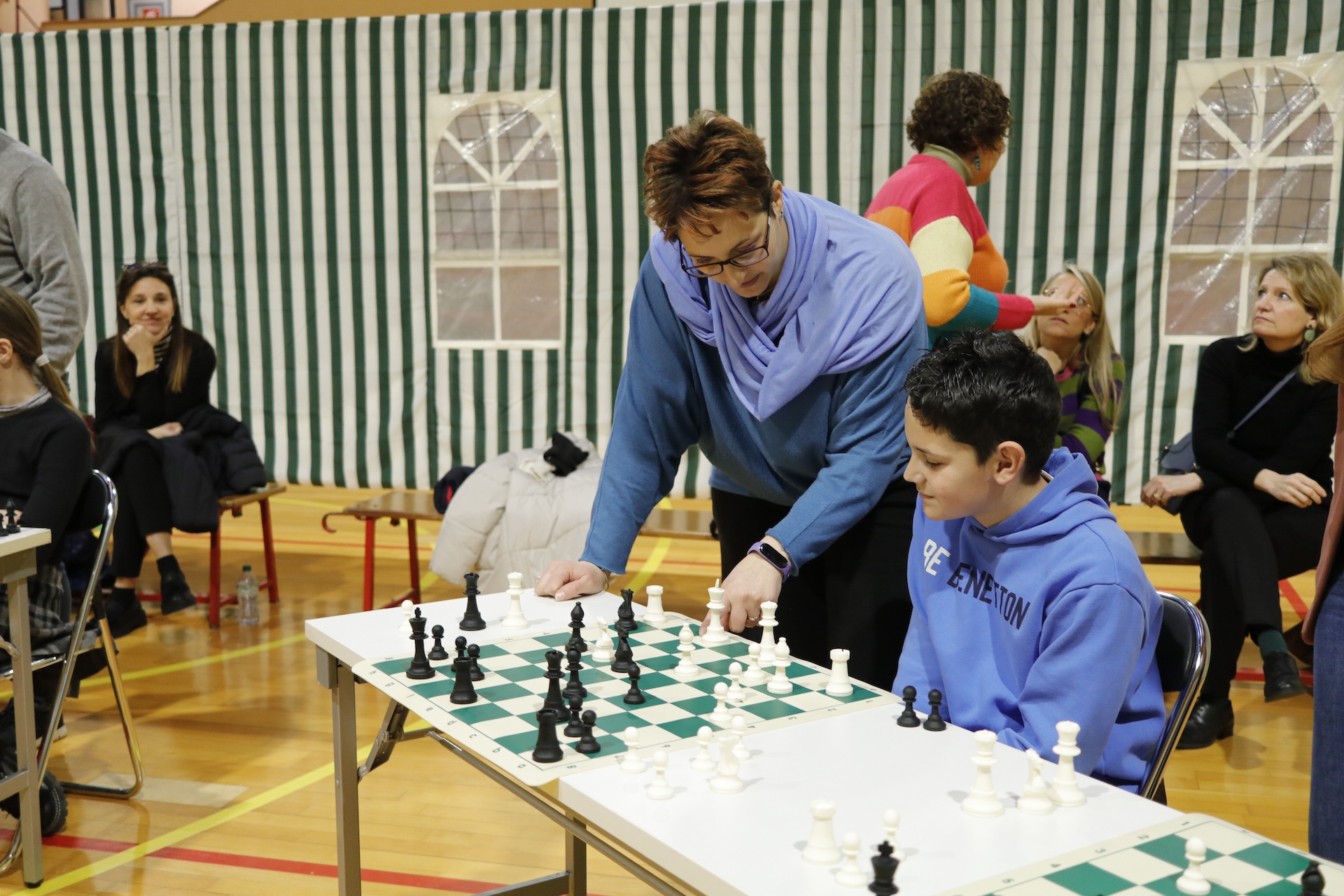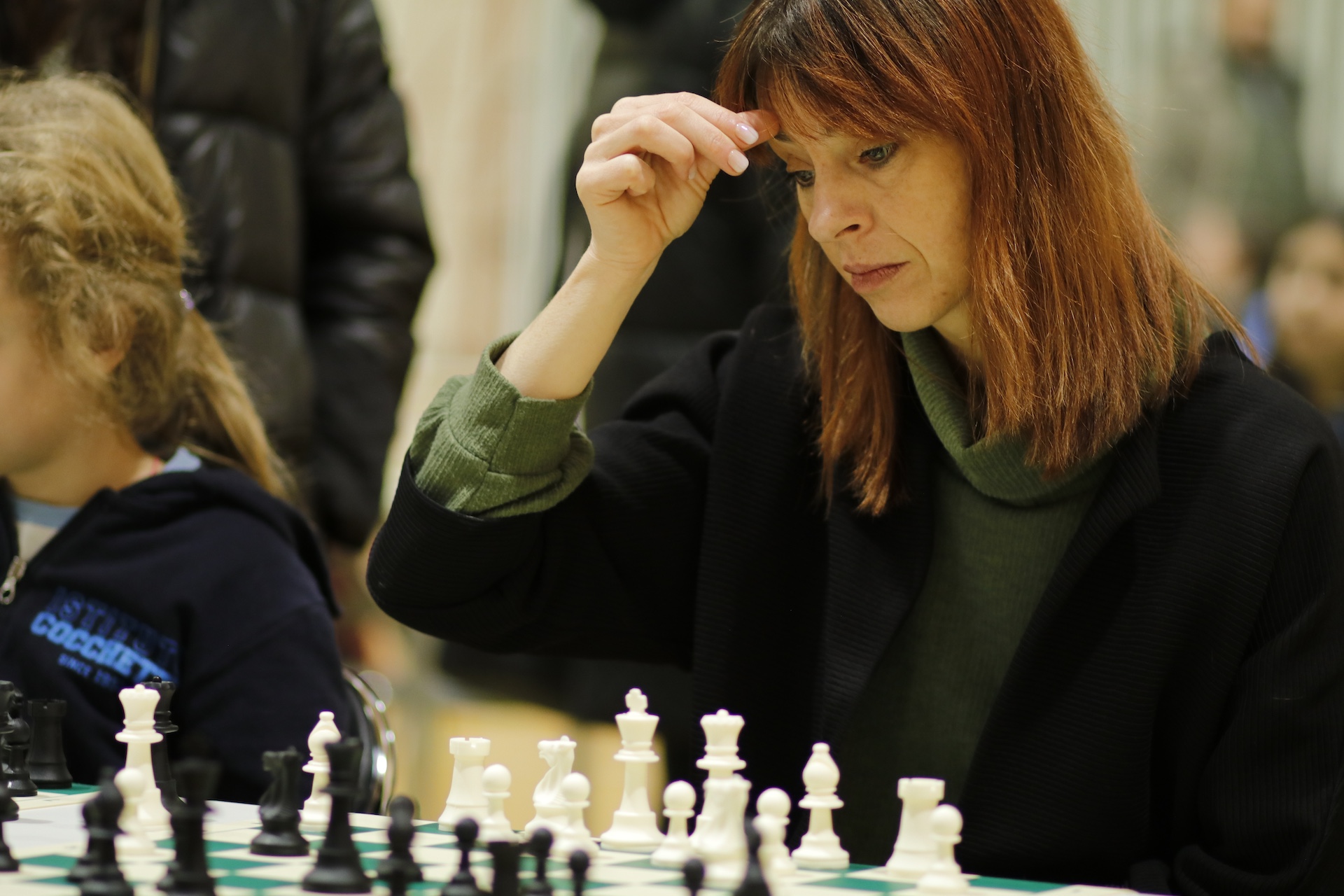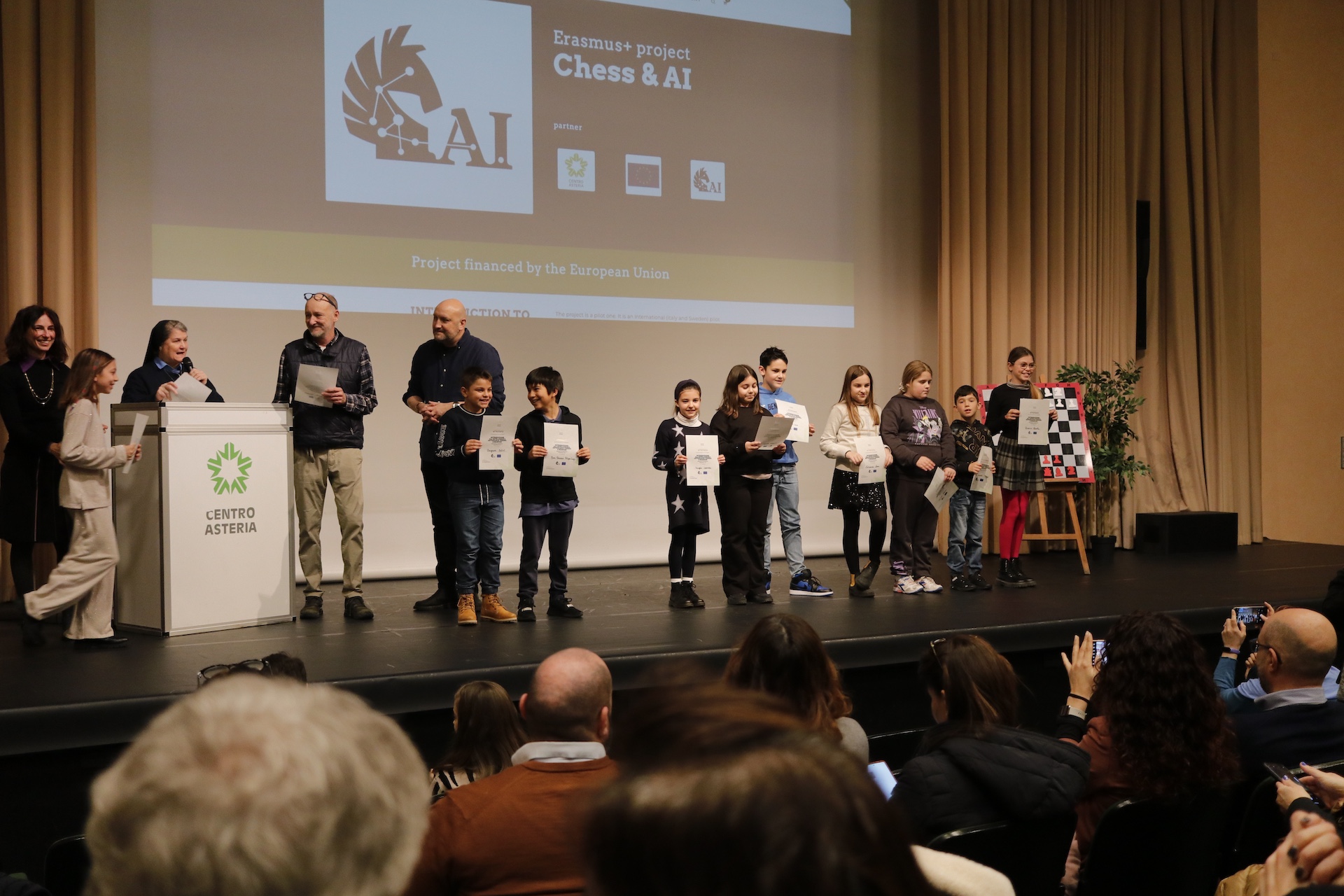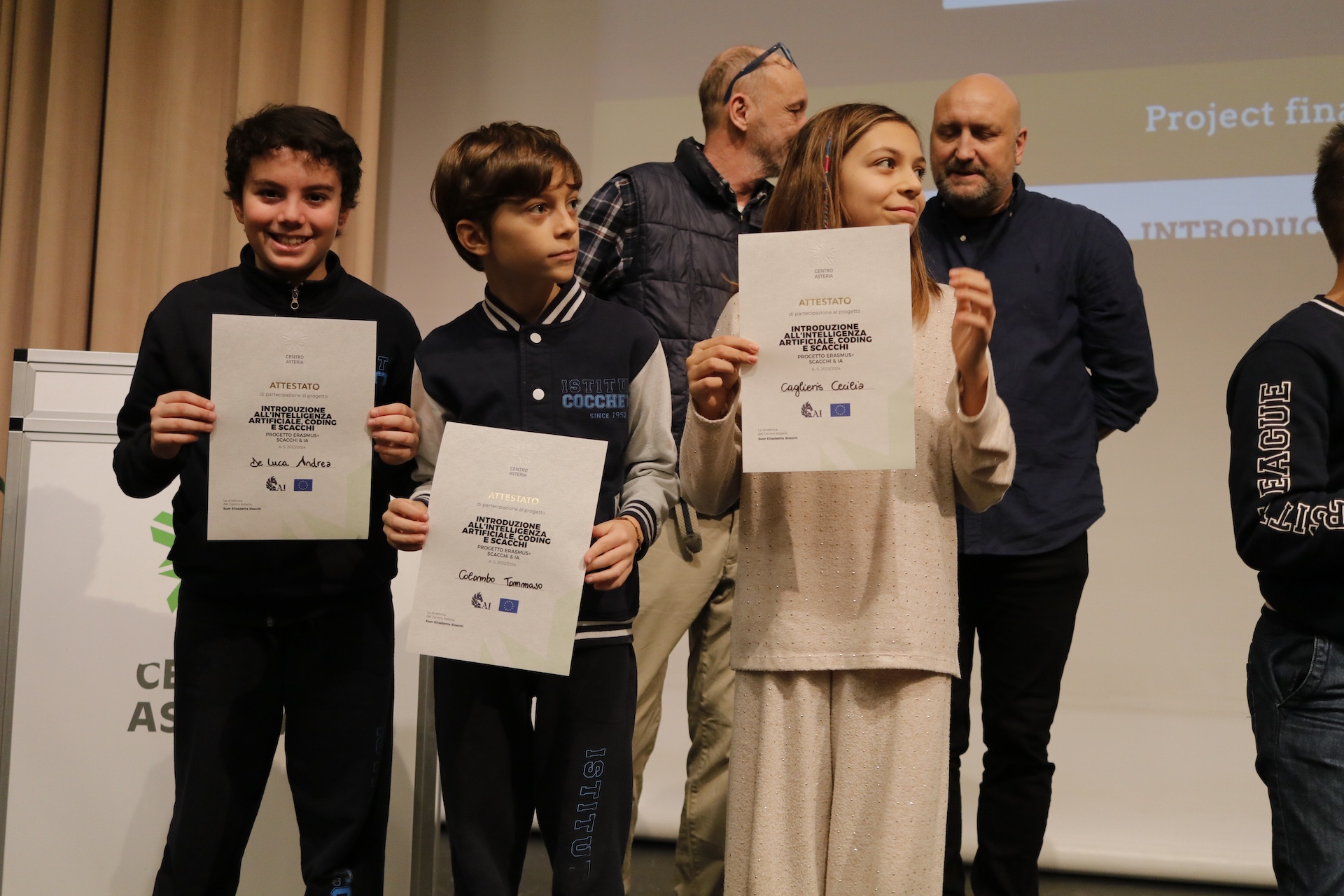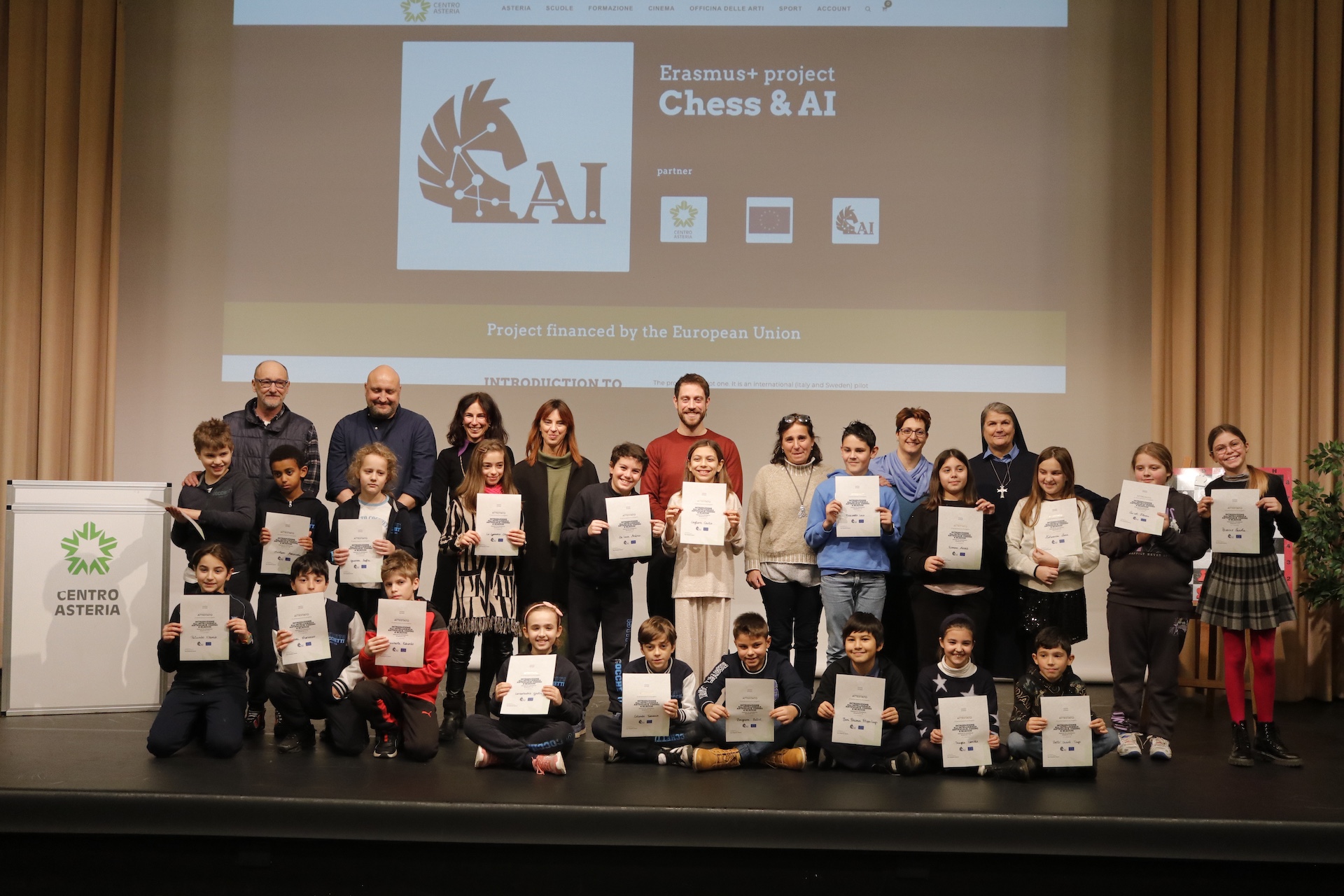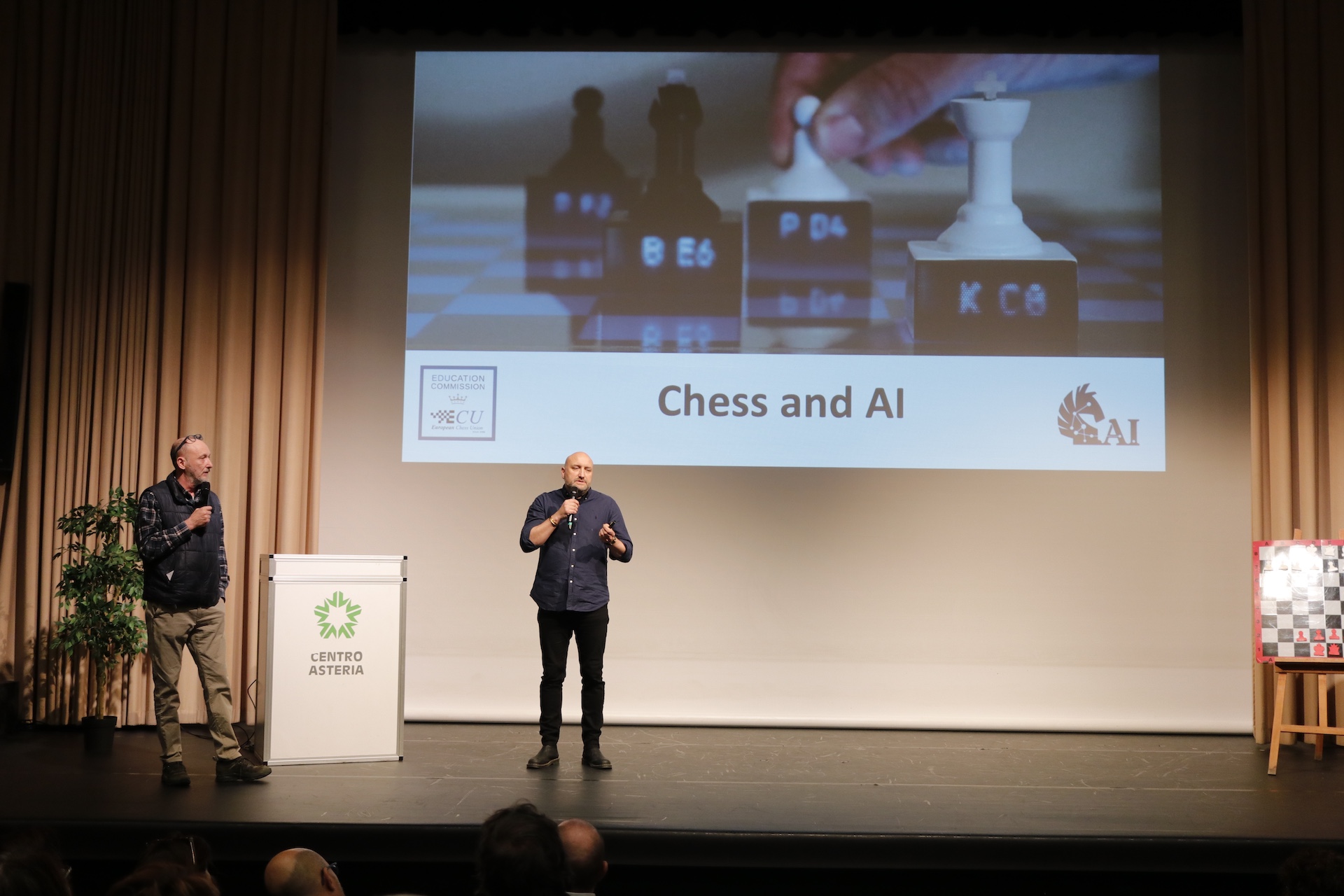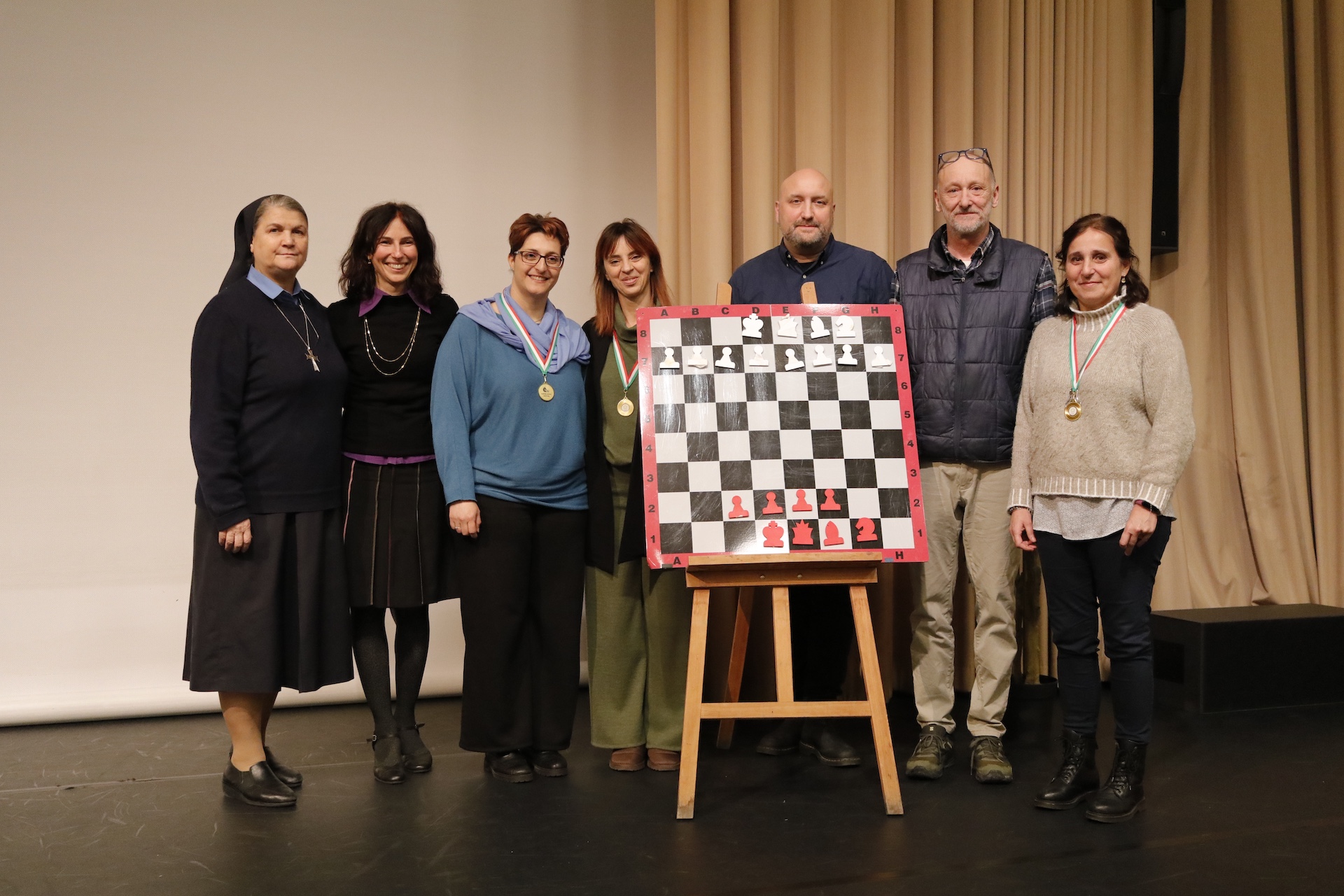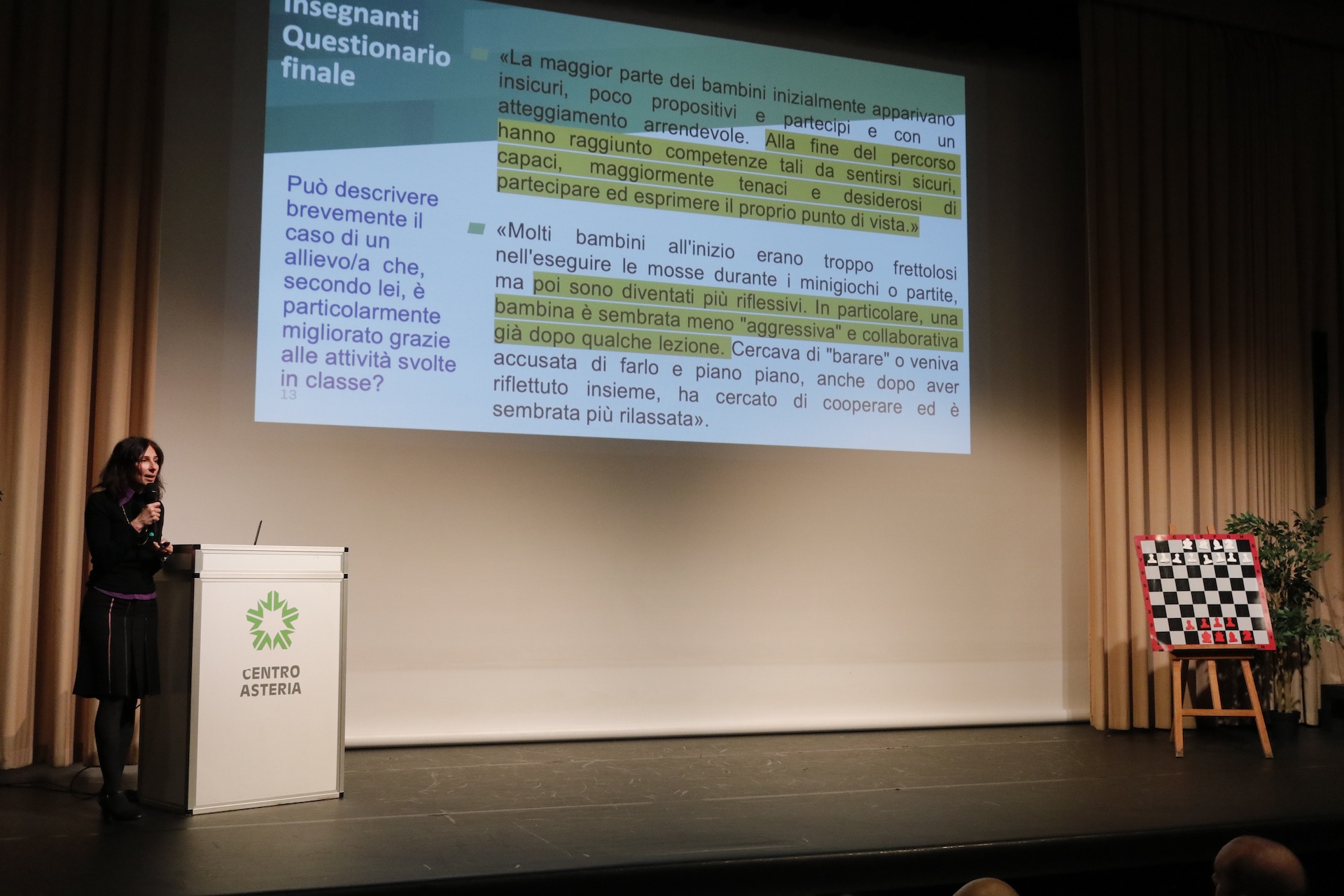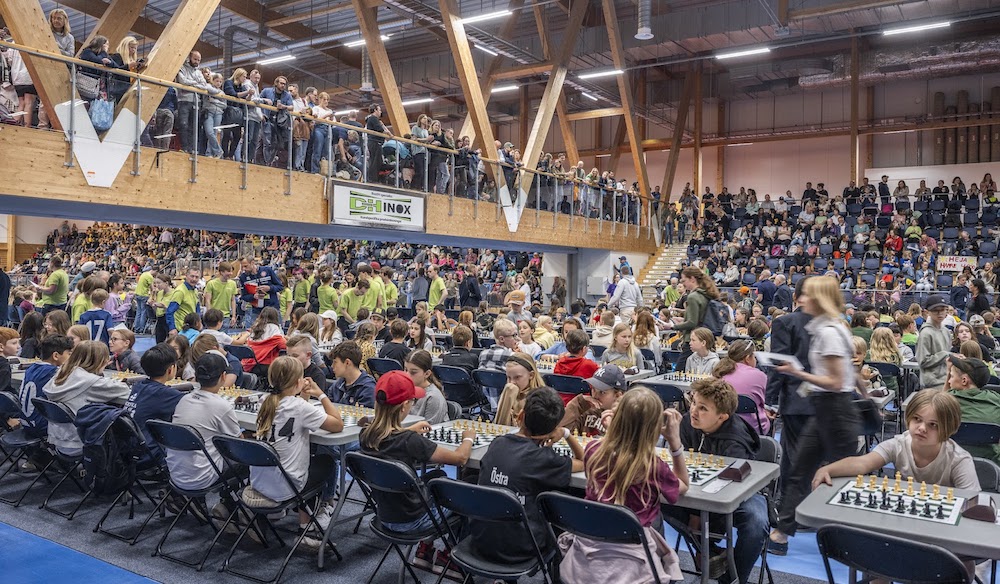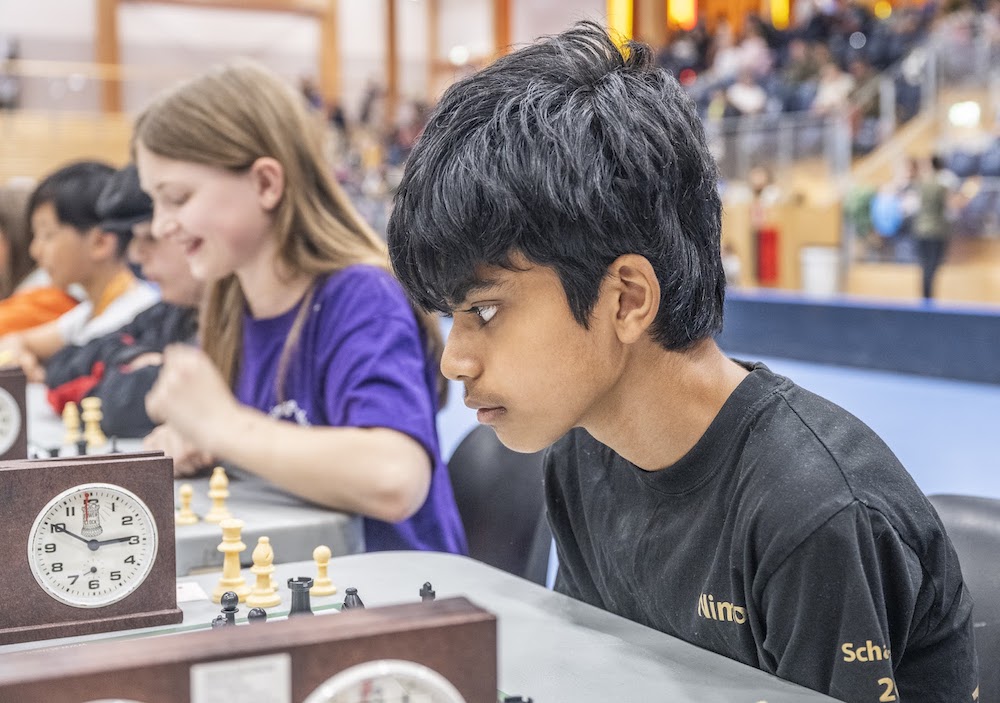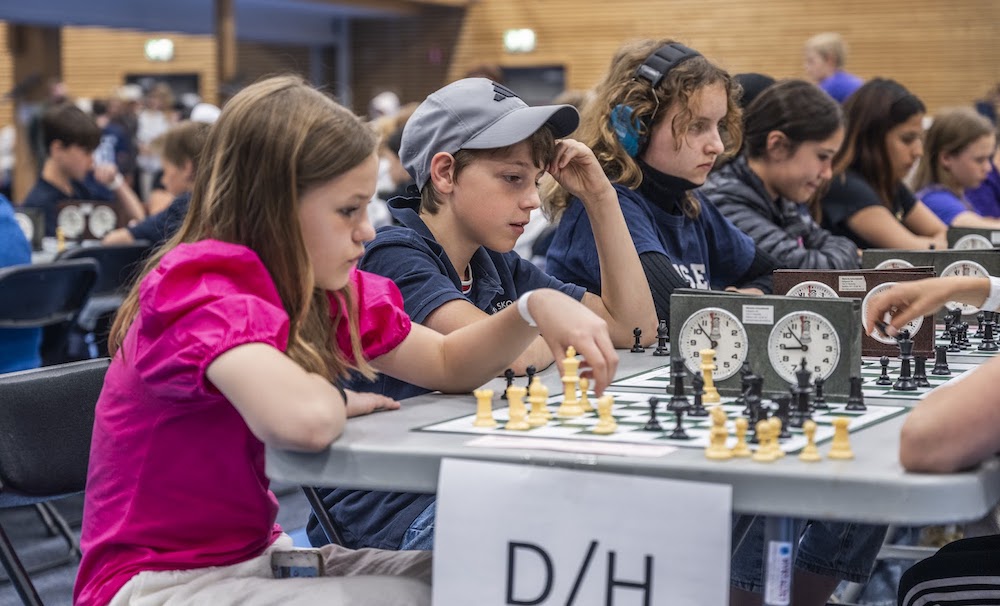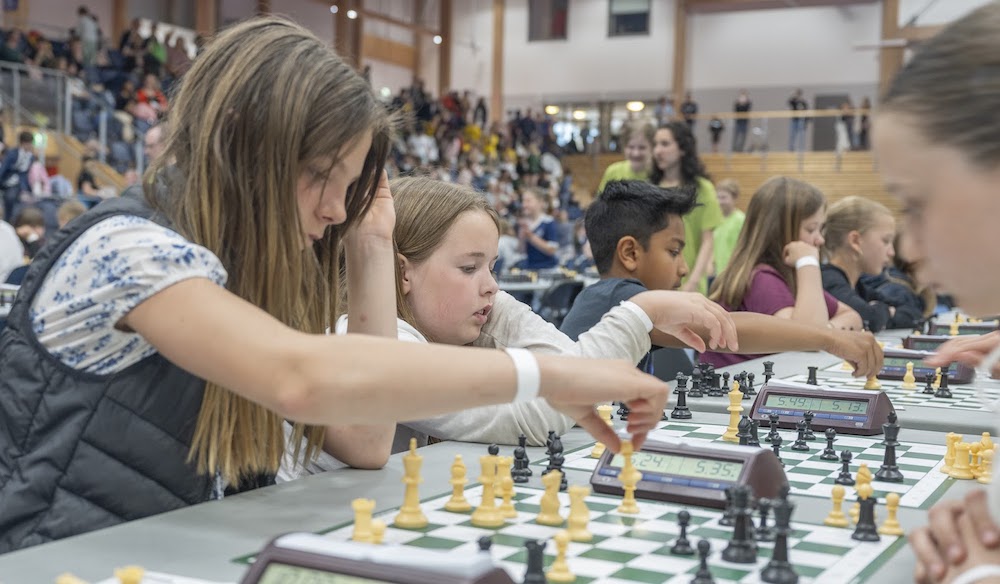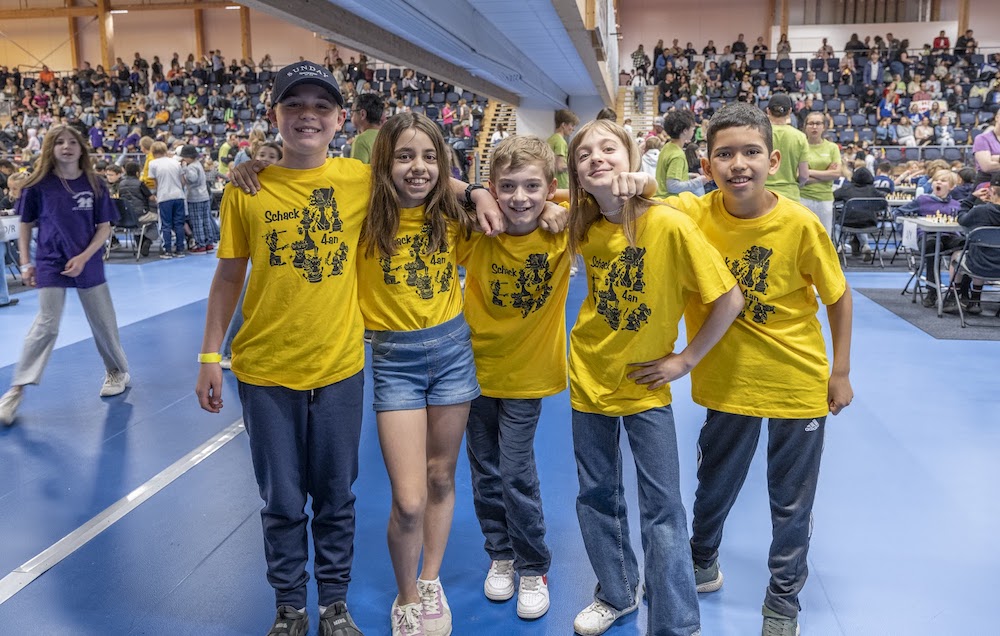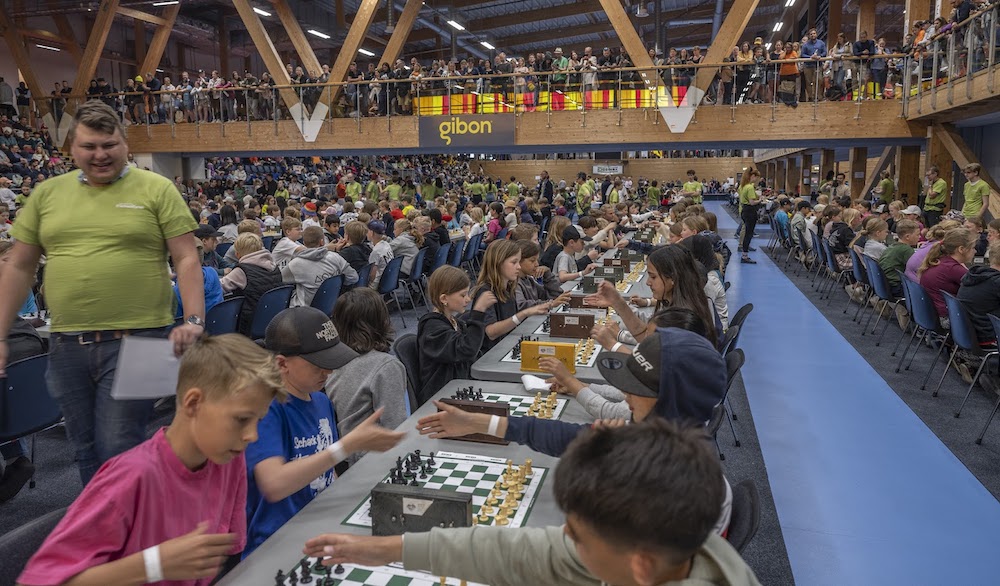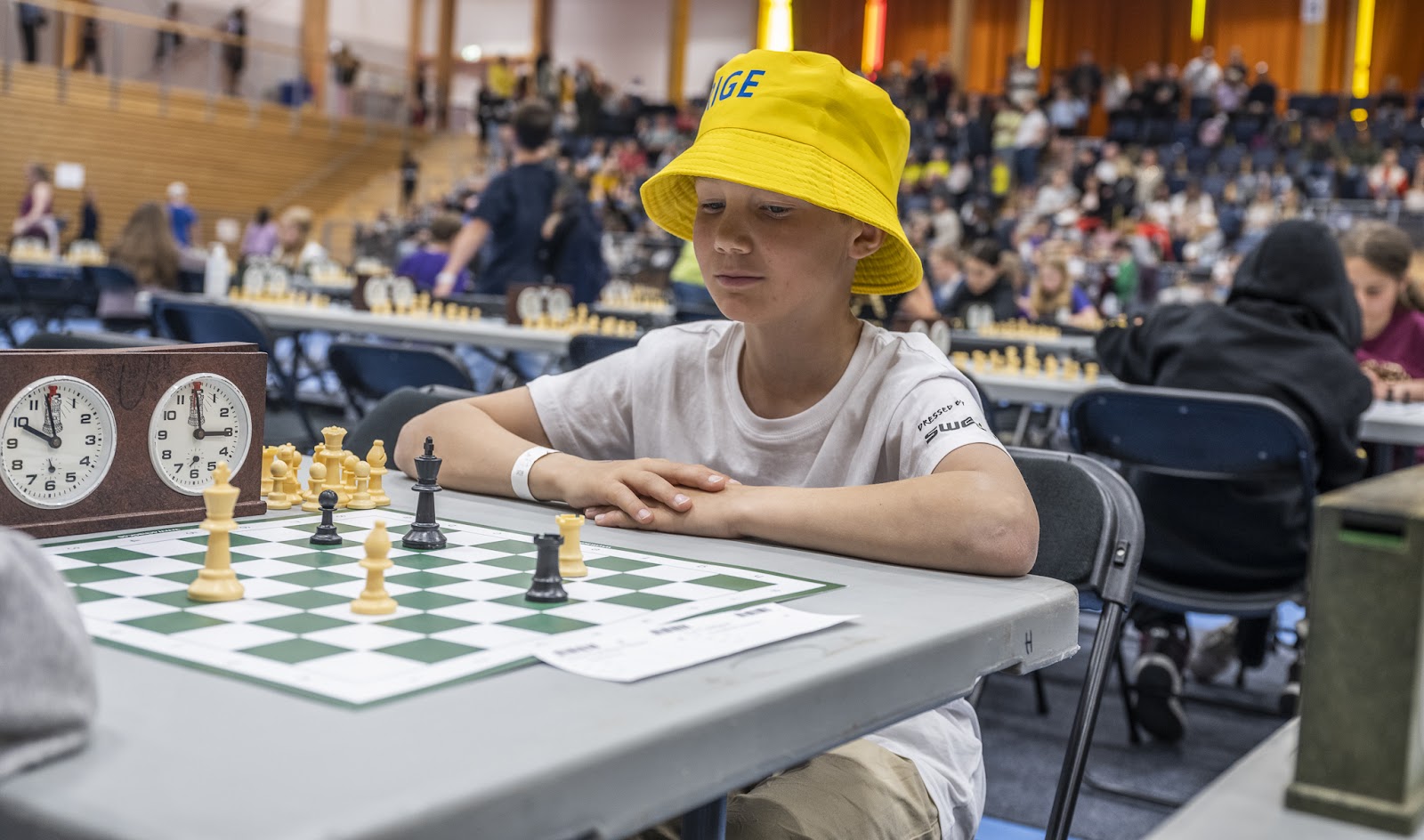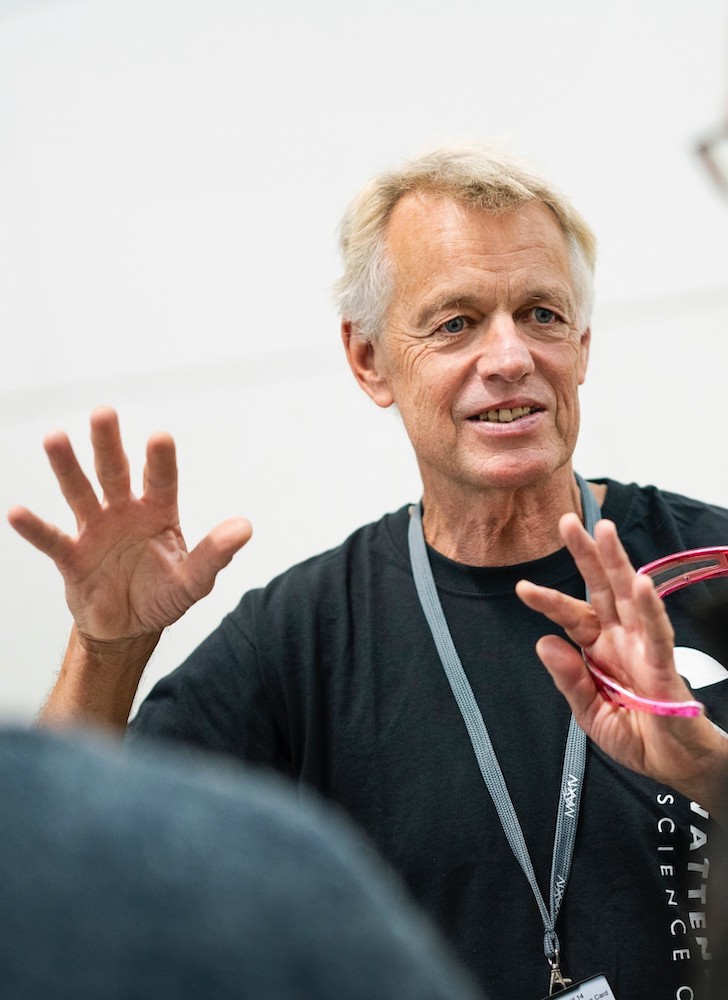
Erasmus+ project
Chess & AI
partner
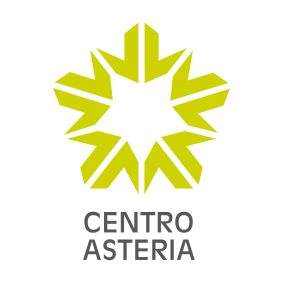


Project financed by the European Union
INTRODUCTION TO ARTIFICIAL INTELLIGENCE, CODING
AND CHESS FOR PRIMARY SCHOOL
The project is a pilot one. It is an international (Italy and Sweden) pilot project that aims to design, develop and test an innovative teaching proposal in the field of STEM disciplines (Science, Technology, Engineering, and Mathematics).
The project has a duration of one year (February 2023 → January 2024). It is currently in progress,
and will be tested in four 5th grade classes: two in Italy (Milan and Como) and two in Sweden (Lund).
We plan to continue the testing of this innovative approach to the STEM subjects’ key competences with a longer (3-year) Erasmus+ project with the participation of at least four EU countries (Italy, France, Spain and Sweden – expectedly). In phase 2, we plan to extend the training offer to the entire primary school (K1 to K8).
Here you will find links to sections on this website describing various features of the new 'Introduction to Artificial Intelligence, Computer Coding and Chess for Primary School' project.
- Which are the main activities of the Project?
- What are the competences and skills at the centre of the teaching strategy of the new course?
- Key competences for the 21st century
- What learning objectives guided the design of our Course?
- What are the characteristics of the teaching method we propose?
- How is the new Course structured?
- Who participates in our pilot Project? The Project Partners.
- How can I contact the project leaders?
- How can I be informed about the final results of the Project?
- How can I participate with my school in the next phase of the Project?
ACTIVITIES
Which are the main activities of our pilot Project?
In summary, the pilot project aims to
- Developing a new course for primary school, grade 5 [K5]
- Enabling teachers to deliver the Course effectively (teacher training)
- Piloting the course delivery in four classes, 2 in Italy and 2 in Sweden
- Monitoring & Evaluation of the pilot delivery to assess the impact of the course on learners and teachers
SKILLS
What are the competences and skills focused by the teaching strategy of the new course?
- Critical thinking
- Troubleshooting
- Strategic thinking
- Time Management
- Sensitivity to ethical risks associated with AI applications
- Logical-mathematical thinking
- Ability to concentrate
- Memory training
- Forecasting and planning skills
- Decision-making capacity.
In the rapidly evolving landscape of the 21st century, several skills have emerged as essential to meet the needs of society and production. These skills are often referred to as “21st-century skills” or “future-ready skills” and are considered crucial for success in various aspects of life, including education, the workforce, and social engagement. Here are listed some key skills that are generally considered as essential. Among them, the blue font highlights the skills fostered by our project through the component of chess in education.
- Critical Thinking and Problem Solving: The ability to analyse information, evaluate situations, and make informed decisions is crucial. Critical thinking involves questioning assumptions, considering multiple perspectives, and finding effective solutions to complex problems.
- Creativity and Innovation: The ability to think creatively, generate new ideas, and apply innovative approaches to challenges is highly valued. This skill is essential for driving progress in various fields, from technology to the arts.
- Communication: effective communication involves not only expressing ideas clearly but also actively listening and understanding others.
- Collaboration: Collaboration skills include working well in teams, valuing diverse viewpoints, and contributing constructively to group efforts.
- Digital Literacy: In an increasingly digital world, having the ability to use and navigate technology, understand digital information, and critically assess online content is essential.
- Information Literacy: With an abundance of information available, the skill to locate, evaluate, and use information from various sources is crucial for making informed decisions and avoiding misinformation.
- Adaptability and Flexibility: The pace of change in the 21st century requires individuals to be adaptable and open to learning new skills and approaches as circumstances evolve.
- Emotional Intelligence: The ability to understand and manage one’s own emotions, as well as to empathize with and relate to others’ emotions, is important for effective communication, teamwork, and leadership.
- Global and Cultural Awareness: As the world becomes more interconnected, understanding different cultures and perspectives is essential for effective communication, collaboration, and navigating a diverse world.
- Resilience and stress management: The ability to cope with difficulties, manage stress and recover from lost challenges are important for maintaining well-being and productivity.
- Leadership and Influence: Even if not in traditional leadership roles, the ability to influence and inspire others, facilitate group dynamics, and lead by example is valuable in various contexts.
- Entrepreneurship and Initiative: Having a proactive approach to identifying opportunities, taking initiative, and pursuing innovative ideas can lead to personal and professional growth.
- Environmental and Sustainable Literacy: In an era of environmental concerns, understanding sustainability and its implications for society, business, and personal decisions is becoming increasingly important.
These skills collectively prepare individuals to navigate the complexities of the modern world, contribute to societal progress, and succeed in various roles. It’s worth noting that the importance of these skills can vary based on specific industries, professions, and cultural contexts.
With this Erasmus+ project, we want to introduce the basic understanding of underpinning concepts of artificial intelligence, coding and chess in primary schools. We believe that the learning objectives of all three subjects: Artificial Intelligence, Coding and Chess, are transversally and jointly, of absolute relevance for the ‘STEM’ disciplines (Science, Technology, Engineering, Mathematics).
[Note: The red font highlights the disciplines that are addressed in our Project’s didactic proposal]
- Critical Thinking ↔ Artificial Intelligence – Chess
- Problem Solving ↔ Artificial Intelligence – Coding – Chess – Maths
- Strategic Thinking ↔ Artificial Intelligence – Coding – Chess
- Time Management ↔ Chess
- Sensitivity to Ethical Risks associated with AI applications ↔ Artificial intelligence
- Logical-mathematical Thinking ↔ Maths – Chess – Coding
- Ability to concentrate ↔ Artificial Intelligence – Coding – Chess – Maths
- Memory Training ↔ Chess – Maths – Coding
- Forecasting and Planning skills ↔ Artificial Intelligence – Coding – Chess – Maths
- Decision-making skills ↔ Chess … and all ‘STEM’ disciplines
What learning objectives guide the design of our Course?
Developing basic chess skills: Students will learn the basic rules, terminology and strategies of chess and chess training, fostering logical thinking, spatial reasoning, and decision-making skills.
Introduction to Coding concepts: Students will be introduced to basic coding concepts, such as algorithms, sequences, alternatives, repetitions, and problem solving, to develop computational thinking skills.
Understanding the principles of artificial intelligence: Students will explore the concepts of artificial intelligence (AI) and understand how it is applied to chess, delving into the role of algorithms and machine learning.
Reasoning about already realised applications of AI technologies: Artificial intelligences are already applied in many aspects of everyday life. During AI lessons, students will be invited to watch interesting videos that exemplify such already real AI applications: from automated driving of vehicles to support bots in websites, from languages translation applications to images recognition and to AI support to medical diagnostics.
DIDACTIS
What are the characteristics of the teaching method we propose?
The teaching method is based on play, cooperation, chess and problem-solving. By stimulating children’s curiosity and desire to learn, we want to open the doors and knowledge of the digital revolution that has already begun and in which we live today.
Lessons are conducted with a mix of physical and conceptual games, classical teaching and digital classroom teaching.
Game-based learning: Use chess as a basis for teaching various concepts. Introduce the game through interactive and engaging activities, both mini-games and riddles, that allow students to explore the rules and strategies of chess.
Practical computer Coding activities: Incorporate accessible and age-appropriate programming activities for primary school students. Use non-online [unplugged] Coding, which enables students to understand the principles of coding.
Collaborative learning: Promote teamwork and collaboration by assigning group activities or pairing students with different skills. Encourage peer learning and problem solving through group discussions and appropriate activities.
Investigation-based approach: Encourage students to ask questions, investigate and discover solutions independently. Provide opportunities for exploration and problem-solving related to chess, coding and artificial intelligence.
Technology integration: Use digital tools and resources to enhance learning experiences. Introduce chess software or online platforms to practise and analyse processes.
Formative assessment: Incorporate formative assessments throughout the project to monitor student progress. Use observation, class discussions and small quizzes to assess understanding and provide timely feedback.
Overall, teaching chess as an educational tool can develop a well-rounded set of skills that extend beyond the game itself and help students succeed in various school and life endeavours.
Teaching chess as an educational tool offers a wide range of benefits beyond learning the game itself. Here are some of the main skills and benefits that chess can support in an educational setting:
- Critical thinking: Chess requires players to think critically, analyse situations and make informed decisions. Students learn to evaluate different options and anticipate consequences before making a move.
- Problem solving: Chess presents complex problems that require creative solutions. Players must devise strategies to overcome obstacles and opponents, developing their problem-solving skills.
- Logical reasoning: Chess involves a series of logical steps and sequences. Players develop their ability to follow logical chains of thought, which can be applied to various academic subjects.
- Pattern recognition: Successful chess players recognise recurring patterns and use them to their advantage. This skill translates into pattern recognition in other areas such as mathematics, science and literature.
- Memory enhancement: Chess encourages memorisation of openings, tactics and historical games. This can improve students’ memory and retention skills, helping them in other learning contexts.
- Planning and prediction: Chess players must plan their moves in advance and predict possible outcomes. This skill trains students to anticipate future events and make informed decisions in different situations.
- Concentration and focus: The game requires sustained attention and concentration. Teaching chess can help students improve their ability to focus on tasks, a skill that’s valuable in all aspects of learning.
- Delayed gratification: Chess teaches patience and the value of waiting for the right opportunity. Students learn that hasty decisions can lead to negative outcomes, which encourages more thoughtful decision making.
- Sportsmanship and ethics: Chess promotes sportsmanship, fair play and respect for opponents. Students learn to deal gracefully with both victory and defeat, which encourages ethical behaviour.
- Time Management: Chess is played with a limited amount of time and requires players to manage their time wisely. This skill can translate into better time management in academics and other activities.
- Visualisation: Players must mentally visualise the board and possible moves. This improves spatial and visual thinking skills, which can be valuable in subjects such as geometry and art.
- Emotional regulation: Chess can evoke strong emotions and teaches students to manage their reactions under pressure. This skill helps them to remain calm and make rational decisions in stressful situations.
- Communication and analysis: Discussing chess moves and strategies develops communication and analytical skills. Students learn to articulate their thoughts and listen to the perspectives of others.
- Cognitive development: Playing chess can improve cognitive functions such as problem solving, memory and reasoning, which can have a positive impact on overall school performance.
- Creativity: Although chess follows specific rules, there’s room for creative strategies and unexpected moves. Encouraging creative thinking within the confines of the game promotes a broader sense of creativity.
- Cultural and historical awareness: Chess has a rich history and is played all over the world. Exploring its origins and significance exposes students to cultural diversity and historical contexts.
THE NEW COURSE
How is the new Course structured?
The aim of the pilot project is to develop 12 lessons of approximately 90 minutes each for fifth graders (11 years old) that will provide students with basic knowledge on:
- what ‘scientific approach‘ means
- Human, computer and artificial intelligence ‘learning differences’
- the basics of computer programming (coding)
- the uses of artificial intelligence (AI) today and in the near future
- the risks and opportunities of AI
and to develop chess skills and the other skills that chess trains, and through this training to provide an insight into the way in which human learning takes place.
Introduction to the game of chess: we start by introducing students to the basics of chess, including the board, the pieces and their movements. We use visual aids, interactive demonstrations and stories to engage students and stimulate their interest in the game.
Fundamentals of coding: We introduce the concepts of computer programming through simple, interactive activities focusing on computer programming not connected to the Internet [unplugged].
Introduce the concept of AI in a simplified way. Discuss how AI is used in chess, highlighting its ability to analyse moves, suggest strategies and play against human opponents. Use of age-appropriate examples and images to make the basic concepts accessible.
Reflection: We conclude each lesson with student reflections. Students can explain their coding choices and reflect on their learning journey.
THE FUTURE
Chess in Education
The movement for the introduction of chess in education is driven by a range of motivations and objectives that stem from the conviction that chess can have numerous cognitive, social, and scholastic benefits for students. The movement advocates for incorporating chess into the curriculum of educational institutions, including schools and universities, with the aim of enhancing students’ overall development. The main promoters of this movement include educators, chess enthusiasts, researchers, and organizations dedicated to promoting the educational benefits of chess.
Overall, the movement for the introduction of chess in education contributes to leverage the intellectual and social benefits of the game to enhance students’ holistic development and equip them with valuable skills for their scholastic and personal lives.
Motivations:
- Cognitive Development: Chess is often regarded as a “brain game” that stimulates critical thinking, strategic planning, problem-solving, and pattern recognition. Advocates believe that these cognitive skills are transferable to other learning subjects and real-life situations.
- Intellectual Skills: Chess requires players to think multiple moves ahead, anticipate opponents’ moves, and adapt to changing game dynamics. These skills can improve students’ memory, concentration, and analytical abilities.
- Emotional Growth: Chess teaches patience, resilience, and the ability to cope with wins and losses. Through playing chess, students can develop emotional maturity and learn to manage their emotions in a competitive environment.
- Social Interaction: Chess is a social activity that encourages communication and sportsmanship. Players often discuss strategies, analyze games, and learn from each other’s experiences, fostering collaboration and communication skills.
- Inclusivity: Chess is a universal game that transcends cultural and language barriers. Introducing chess in education can provide a common ground for students from diverse backgrounds to interact and engage in friendly competition.
Objectives:
- Educational Enhancement: Integrating chess into the curriculum is believed to improve scholastic performance by enhancing cognitive skills, critical thinking, and problem-solving abilities, which can have positive effects across subjects.
- Lifelong Learning: Chess is a lifelong hobby that promotes continued learning and intellectual engagement beyond the classroom. Introducing students to chess can encourage a lifelong passion for learning.
- Personal Development: The movement aims to foster character traits like patience, discipline, and perseverance through the challenges and rewards that come with playing chess.
- Equal opportunities: Chess is accessible to students regardless of gender, age, socio-economic background, physical strength, and relational placement within the class group. The introduction of chess in education can offer all students equal opportunities to develop valuable skills.
- Community Building: Chess clubs and tournaments within educational institutions can create a sense of community and belonging among students, teachers, and parents.
Main Promoters:
- Educators: Many teachers and educational experts recognize the potential of chess to improve students’ cognitive abilities and incorporate it into their teaching methods.
- Chess practitioners: Individuals passionate about chess often work to promote its benefits in education, either through volunteering or collaborating with schools.
- Research Organizations: Researchers study the impact of chess on learning and cognitive development, providing empirical evidence that supports the integration of chess into education.
- Chess Organizations: National and international chess organizations, like FIDE (Fédération Internationale des Échecs) and ECU (European Chess Union), often support the introduction of chess in education as part of their efforts to promote the game.
- Non-profit Organizations: Various nonprofit organizations are dedicated to promoting chess in education, providing resources, curriculum materials, and training for teachers to effectively integrate chess into their classrooms.
- Government Initiatives: In some cases, governments recognize the potential benefits of chess in education and may provide funding or support for programs that introduce chess into schools.
During the last 15 years, attention to the possibility of using chess in education has increased dramatically.
The current revolution of digital technologies in the organisation of industries and services has highlighted the inherent difficulties of school systems in efficiently providing students with the skills considered essential for the 21st century. An educational proposal that would benefit both sides could focus on the cross-curricular skills associated with the STEM fields (to be updated regularly), integrated with the educational values of the game of chess (whose rules do not change for decades).
Overall, teaching chess as an educational tool can develop a well-rounded set of skills that extend beyond the game itself and help students succeed in various school and life endeavours.
Teaching chess as an educational tool offers a wide range of benefits beyond learning the game itself. Here are some of the main skills and benefits that chess can support in an educational setting:
- Critical thinking: Chess requires players to think critically, analyse situations and make informed decisions. Students learn to evaluate different options and anticipate consequences before making a move.
- Problem solving: Chess presents complex problems that require creative solutions. Players must devise strategies to overcome obstacles and opponents, developing their problem-solving skills.
- Logical reasoning: Chess involves a series of logical steps and sequences. Players develop their ability to follow logical chains of thought, which can be applied to various academic subjects.
- Pattern recognition: Successful chess players recognise recurring patterns and use them to their advantage. This skill translates into pattern recognition in other areas such as mathematics, science and literature.
- Memory enhancement: Chess encourages memorisation of openings, tactics and historical games. This can improve students’ memory and retention skills, helping them in other learning contexts.
- Planning and prediction: Chess players must plan their moves in advance and predict possible outcomes. This skill trains students to anticipate future events and make informed decisions in different situations.
- Concentration and focus: The game requires sustained attention and concentration. Teaching chess can help students improve their ability to focus on tasks, a skill that’s valuable in all aspects of learning.
- Delayed gratification: Chess teaches patience and the value of waiting for the right opportunity. Students learn that hasty decisions can lead to negative outcomes, which encourages more thoughtful decision making.
- Sportsmanship and ethics: Chess promotes sportsmanship, fair play and respect for opponents. Students learn to deal gracefully with both victory and defeat, which encourages ethical behaviour.
- Time Management: Chess is played with a limited amount of time and requires players to manage their time wisely. This skill can translate into better time management in academics and other activities.
- Visualisation: Players must mentally visualise the board and possible moves. This improves spatial and visual thinking skills, which can be valuable in subjects such as geometry and art.
- Emotional regulation: Chess can evoke strong emotions and teaches students to manage their reactions under pressure. This skill helps them to remain calm and make rational decisions in stressful situations.
- Communication and analysis: Discussing chess moves and strategies develops communication and analytical skills. Students learn to articulate their thoughts and listen to the perspectives of others.
- Cognitive development: Playing chess can improve cognitive functions such as problem solving, memory and reasoning, which can have a positive impact on overall school performance.
- Creativity: Although chess follows specific rules, there’s room for creative strategies and unexpected moves. Encouraging creative thinking within the confines of the game promotes a broader sense of creativity.
- Cultural and historical awareness: Chess has a rich history and is played all over the world. Exploring its origins and significance exposes students to cultural diversity and historical contexts.
all pics by @Giovanni Tammaro
all pics by @Lars OA Hedlund
CONTACTS
Paolo Sartorelli
Project Coordinator & Manager
Paolo has a background in Physics. He was the developer of our pilot Project proposal that was approved and funded by the Erasmus+ Programme. On behalf of the Asteria Culture Centre he is in charge of the coordination of the experts’ Team and of the management of the Project.Ilaria Piccozzi
Pedagogist in charge of Monitoring & Evaluation
Ilaria is a Pedagogist and a primary school teacher. She operates since long time with the research department of Experimental Pedagogy of the Turin University (Prof. R. Trinchero). Ilaria is currently in charge of the Monitoring & Evaluation component of our Project.Rolf Niemann
Author of coding and AI lessons
Rolf is a Physicist. He is a staff member of the Vattenhallen Science Center of the Lund University (one of our project partners). Within our activities, he oversees the development of the Coding and the Artificial Intelligence lessons (for some aspects, in collaboration with Jesper Hall). Furthermore, he will support as a tutor in the training to Swedish teachers and provide support to Alessandro Dominici for the components of training to teachers related to both Coding and AI.Jesper B. Hall
Author of chess and AI lessons
Jesper, chair of the Educational Commission of the European Chess Union (ECU), is in charge of integration of Chess as a key opening to the understanding the key concepts of Artificial Intelligence and Coding. Furthermore, he is developing some of the 12 lessons in collaboration with Rolf Niemann and will act as a tutor in the training to Swedish teachers.Alessandro Dominici
Responsible of Training of Teachers
Alessandro, who has a long experience in training of teachers involved in teaching chess as an educational tool, is in charge of the Training to Teachers component of our Project.Elisabetta Stocchi
as directress of the Asteria Culture Centre, is the leader of our Project.
Elisabetta, as directress of the Asteria Culture Centre, is the leader of our Project.PARTNERS
Who participates in the Project?
The pilot project partners are:
Centro Asteria – (Milan – Italy)
The Asteria Culture Centre is the project leader.
Mrs. Elisabetta Stocchi is the Project Director.
Most of the Experts report to the Asteria Centre:
(In alphabetical order)
- Alessandro Dominici
- Jesper Hall
- Ilaria Piccozzi
- Paolo Sartorelli
Vattenhallen Science Center – (Lund University, Lund – Sweden)
- Rolf Niemann
Computer Science Education Research Group – CSER (University of Adelaide, Australia)
(Institution concerned – Project Stakeholder)
Primary schools:
(In alphabetical order)
Internationella Engelska Skolan (Lund, Sweden)
Istituto M.A. Cocchetti (Milan, Italy)
Istituto S. Maria Assunta (Como, Italy)

